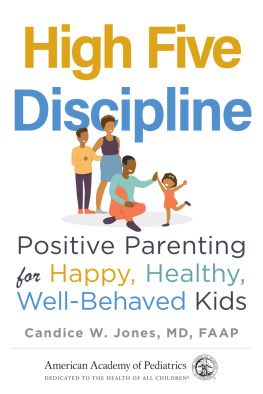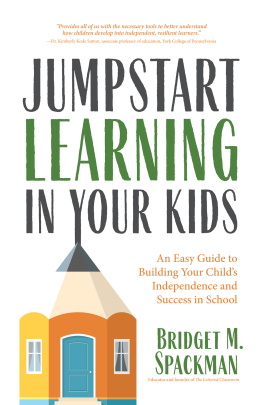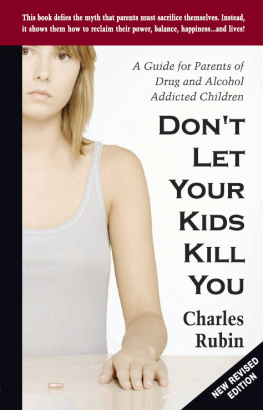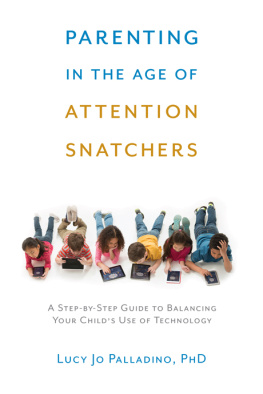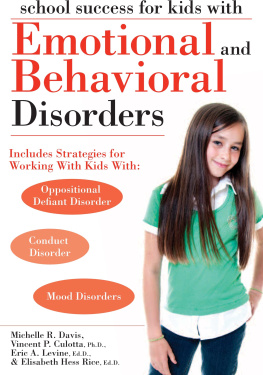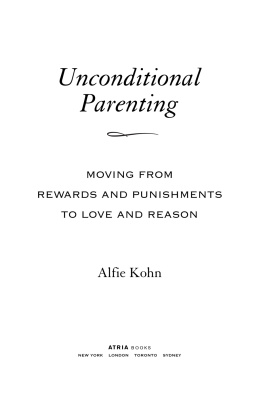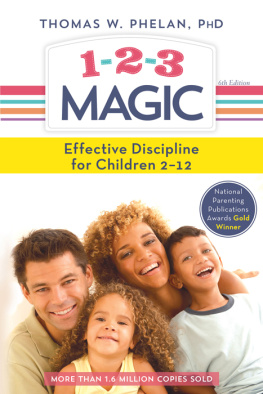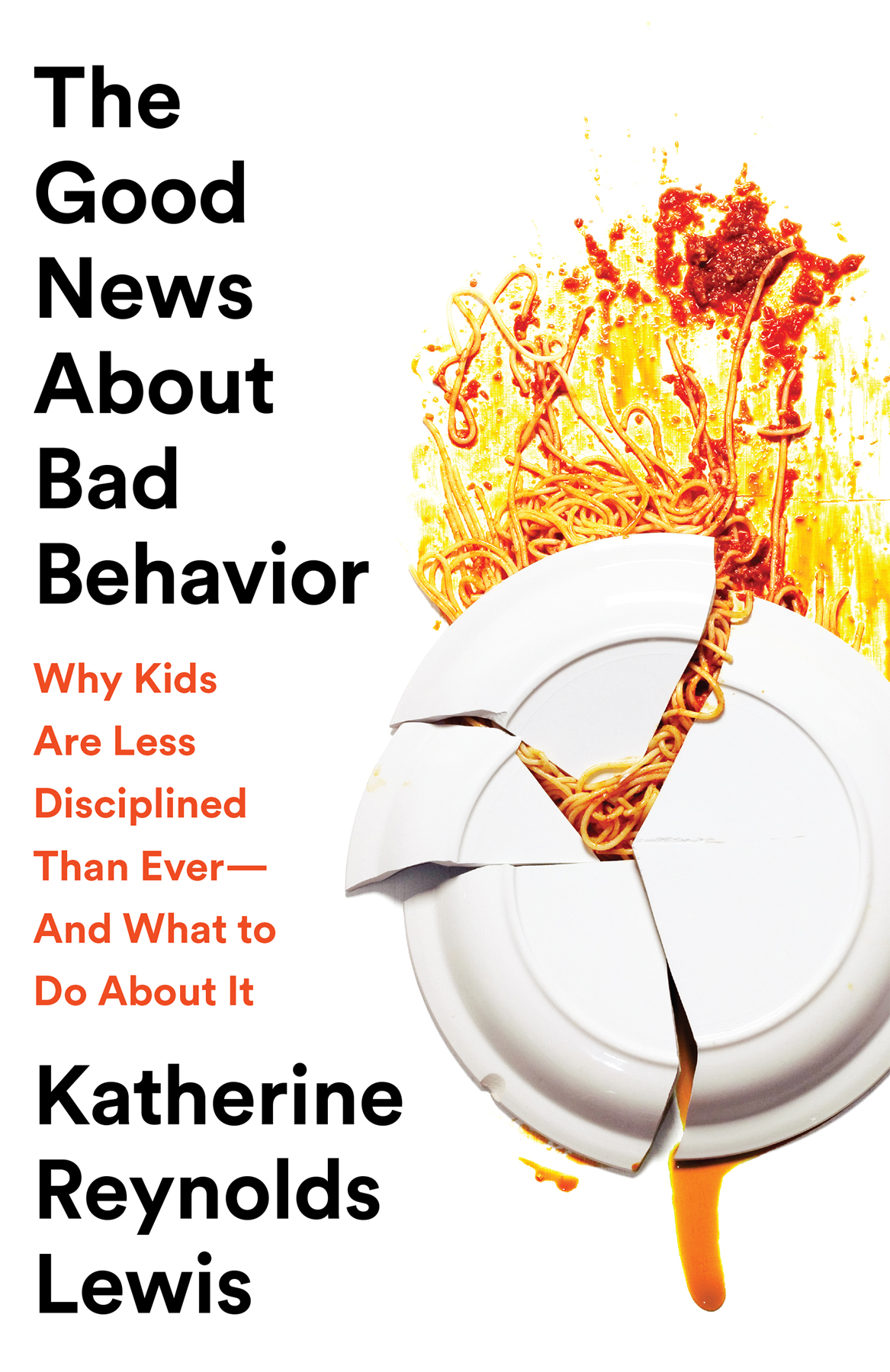T HIS BOOK CONTAINS BOTH SCENES I observed and scenes that I re-created through interviews with people who were present and documentary evidence, when available. I am present in some way in the scenes I reported in person. Whenever someones emotion is described, I interviewed that person after the fact to ask what they were feeling at the moment.
I am immensely grateful to the educators, parents, and children who welcomed me into their classrooms and homes to observe and learn. I have changed some names and identifying details.
C AMILA C ULLENS EVENINGS WERE BEGINNING to feel like torture. Like an endless game of whack-a-mole.
She tried to ignore the muffled thumps as she read a book in bed. Then a door burst open. She looked up. Through the open door of her bedroom, she saw a slight figure dash out of the room across the hall and run upstairs.
Mariana. Probably headed to the attic playroom to grab some toys.
Camila checked her watch. 10:00 p.m. She sighed.
I wonder what time she will fall asleep. How many nights can she keep this up?
Mariana, age seven, and her younger brother, four-year-old Alejandro, had been partying at bedtime, as they called it, for days. The pair seemed to be in open revolt, and Camila, forty-one, finally got tired of fighting it. She and her husband, Colin, forty-two, had tried everything they could think of to bring peace to the familys evenings. They played soft music. They lay down beside their offspring. They threatened and pleaded. Nothing worked consistently to get the children to sleep.
Testy from sleep deprivation, Camila and Colin had squabbled with each other over how to handle bedtime. Defeated, the parents decided to stop nagging, threatening, or wheedlingjust for a weekto see what would happen.
Bedtime became chaos. Mariana and Alejandro would rile each other up, laughing and running around like crazy. After each late night, the mornings dragged out later and later. The family twice pulled into their Washington, DC, public charter school noticeably tardy. The tired-out kids simply couldnt get out the door on time.
Camila felt hopeless. She wondered if they should put the children in separate bedrooms. Alejandro went to sleep more willingly. He was always the first to say he was tired of the party and climb into bed. But Mariana could play with toys, build structures, or just dance around the room until 11:00 p.m. some nights. It was the fall of 2015, and the school year stretched ahead of the family ominously.
With them in the same room, no sooner had Camila kissed and tucked in one child than the other popped out of bed to get water or a stuffed animal or with some other excuse.
Im exhausted, she told me in a phone interview. I cannot do anything because Im spending all my time putting them to bed.
T HE C ULLENS ARE TWO OF the parents youll meet in this book, but they are far from alone. In fact, stories like theirs are so common that they have effectively redefined normal. Parents increasingly struggle with kids who cant seem to control their behavior or emotional response. Government data confirm this. A sweeping study by the National Institute of Mental Health revealed that one in two children will develop a mood or behavioral disorder or a substance addiction before age eighteen. Extensive research I present in shows that this represents an actual change in children, not just a rise in diagnosis.
So if you look around and see misbehaving, undisciplined children everywhere, its not your imagination. Children today are fundamentally different from past generations. They truly have less self-control.
Simply put, we face a crisis of self-regulation.
I hope the cutting-edge research and stories of real families in this book will transform your view of disciplineand give you examples of both what to do and what not to do. By the conclusion, youll see how the Cullens pushed through their bedtime frustration with persistence that paid off. After they absorbed and implemented the key principles in this book, they turned bedtime into a peaceful family ritual.
This book makes the case that when adults crack down on bad behavior, they undermine the development of the very traits that children need to become self-disciplined and productive members of society. Tactics such as time-outs and rewards for behavior you want may seem to help in the short run. But Ill show how they actually hold children back by undermining their self-regulation, one of the bedrock skills for success in school, in college, in the workplace, and beyond.
Its entirely understandable that when children misbehave, adults feel an urge to squash the unwanted behavior. We should resist that impulse. Its exactly the opposite of whats needed.
Instead, pay attention. View the childs actions as a clue to a puzzle that can only be solved with the childs engaged cooperation and as an opportunity to help that child develop an important skill. Its easy to forget that just as children need practice to learn how to ride a bike, tie their shoes, and do math, they must try and fail and try again when it comes to managing their own behavior.
Can you imagine sending your child to time-out because they couldnt ride their bike all the way to the stop sign and back? Of course not. First, it simply doesnt work. Its not as though a time-out is going to improve their balance or coordination. Second, youd be throwing away a prime opportunity to engage your child in a constructive moment, a teaching moment. So when you factor in what you might call the opportunity cost of punishment, its not just that traditional discipline really doesnt workit moves you away from the goal.


